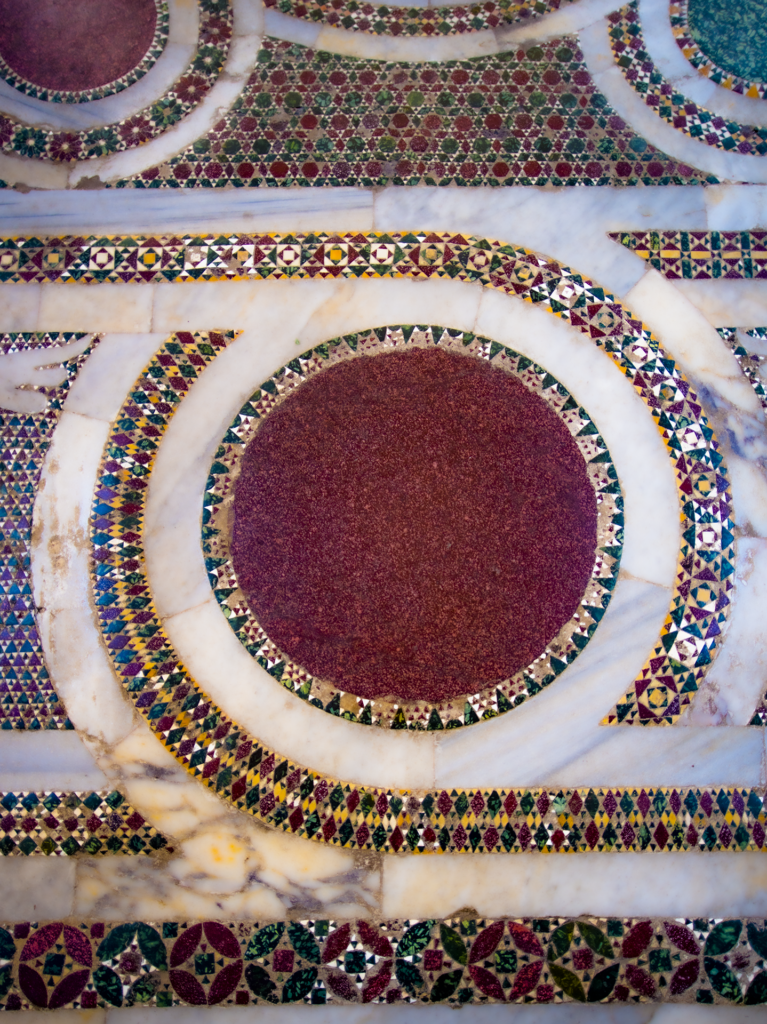The opus tessellatum is one of the oldest procedures, also used in the Middle Ages. It is expressed through marble coverings of different colours and divided into different shapes, usually geometric, such as square, rectangle, triangle, sphere, pentagon, hexagon, octagon and also floral or figured motifs. The term comes from the Latin “tessella”, meaning the small multicoloured pieces of marble tiles, or even glass and ceramics, assembled using mortar. The opus sectile, which can be found alternating with the opus tessellatum, consists of the depiction of animal or human figures, using slabs of two or three marbles. Marble pieces, therefore, have a larger size and are evaluated according to opacity, brilliance, colour, shades.
The opus sectile, which can be found alternating with the opus tessellatum, consists of the depiction of animal or human figures, using slabs of two or three marbles. Marble pieces, therefore, have a larger size and are evaluated according to opacity, brilliance, colour, shades.